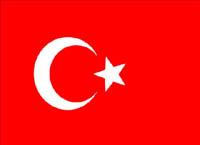Facing crackdowns, Kurdish journalists demand freedom of speech

Journalists fear officials in the self-governing region are turning to the criminal courts in a bid to stifle criticism, the deputy editor-in-chief of an independent weekly newspaper said Wednesday.
A meeting scheduled for Thursday at the Sulaimaniyah offices of the Awene weekly, or Mirror, comes after Assos Harde, the former editor-in-chief of the best-selling weekly Hawlati, and that newspaper's current chief editor, Tuwana Othman, received six month suspended sentences on charges of defaming a regional governor, said Shwan Mohammed, Awene's deputy editor-in-chief.
Court officials said Harde, currently Awene's editor-in-chief, and Othman had published an article on Oct. 12, 2005 claiming that the governor, Omar Fateh, ordered the firing of two telephone company workers who cut his phone line because he was delinquent in paying his bill, the AP reports.
Officials later determined it was the regional communications minister who ordered the move, court officials said.
Two other writers for Hawlati, Hawez Hawezi, and Mastura Mahmoud, also face prosecution on defamation charges relating to separate cases.
Iraq's northern Kurdistan region enjoyed relative autonomy for more than a decade before the U.S.-led Iraq war, but rights groups have recently complained about a crackdown on press freedoms that violates Iraq's new constitution. As in other Arab countries, editors-in-chief in Iraq can be held personally accountable for allegedly defamatory articles published in their newspaper.
Thursday's meeting in Sulaimaniyah will urge print and broadcast journalists to protest such crackdowns and possibly call for a public demonstration, said Mohammed.
Hawezi was recently arrested in Sulaimaniyah after writing an article condemning the treatment he had received while being detained for a report he wrote criticizing the leadership of the Kurdistan Democratic Party and the Patriotic Union of Kurdistan.
Mahmoud faces trial on defamation charges stemming from an article he wrote on March 16 commemorating the 1988 gas attack on the village of Halabja that left 5,000 dead. Mahmoud quoted a girl demonstrating in the village as saying that security forces in the town were behaving in much the same way as Saddam's security forces had done, authorities have said.
On March 26, Kamal Sayid Qaidr, a dual Iraq-Austrian national, was sentenced to 18 months in prison for articles he wrote accusing Kurdistan's president and KDP chief, Massoud Barzani, of corruption. Later, Qaidr was pardoned at the request of local and international groups.
Subscribe to Pravda.Ru Telegram channel, Facebook, RSS!




